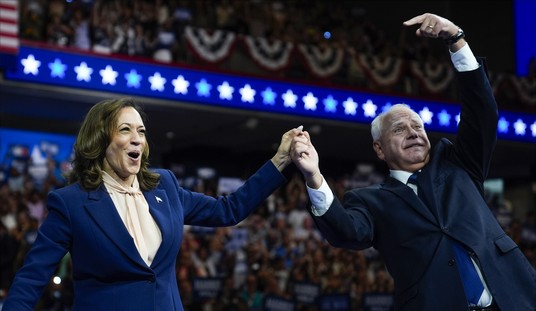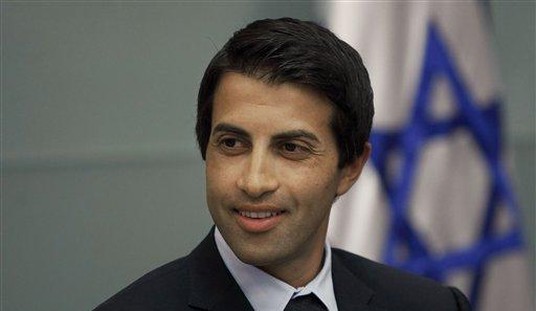Pope Francis sent an eight-page letter to the U.S. Conference of Catholic Bishops this week blaming “efforts made to deny or conceal” allegations of sexual abuse for the “crisis of credibility” the church is experiencing.
The letter came as U.S. bishops were beginning a weeklong retreat Wednesday near Chicago to confront the church’s sexual abuse scandal. Organizers of the retreat said the prelates would focus on “prayer and spiritual reflection and not formulating policy.” The confab will reportedly serve as a prelude to the summit of the world’s bishops being held at the Vatican next month to craft a comprehensive response to the clerical abuse crisis.
The retreat began a day after the Associated Press reported that the Vatican blocked U.S. bishops from taking measures to address the scandal at their conference last year, and as another scandal rocked the Vatican — this one involving a 54-year-old Argentine bishop who landed a top administrative job at the Holy See after priests accused him of sexual abuse and other misconduct.
“We know that, given the seriousness of the situation, no response or approach seems adequate; nonetheless, we as pastors must have the ability, and above all the wisdom, to speak a word born of heartfelt, prayerful and collective listening to the Word of God and to the pain of our people,” the pontiff wrote in his letter to the bishops.
“In recent years, the Church in the United States has been shaken by various scandals that have gravely affected its credibility,” he continued. “The Church’s credibility has been seriously undercut and diminished by these sins and crimes, but even more by the efforts made to deny or conceal them. This has led to a growing sense of uncertainty, distrust and vulnerability among the faithful. As we know, the mentality that would cover things up, far from helping to resolve conflicts, enabled them to fester and cause even greater harm to the network of relationships that today we are called to heal and restore.”
Not surprisingly, the pontiff left one key point out of his letter, as Lifesite news pointed out:
The Pope did not mention in his letter that it was his rehabilitation of now ex-Cardinal McCarrick that contributed in no small part to the current American crisis. A key catalyst of that crisis was Archbishop Viganò’s testimony that the Pope lifted sanctions against the U.S. Cardinal despite knowing that he was an abuser of priests and seminarians.
Francis not only lifted the sanctions on the known serial abuser, but he also made McCarrick his most trusted adviser for relations with the Obama administration, according to Archbishop Carlo Viganò, who has been in hiding since the publication of his bombshell 11-page letter last August that accused the pope of covering up McCarrick’s sexual crimes. The pontiff has also been credibly accused of covering up sexual abuse crimes from his days as a prelate in Argentina.
The irony was not lost on EWTN’s Raymond Arroyo, who tweeted his reaction to the pope’s letter:
The Pope to US Bishops in 8 page letter: this spiritual retreat is "a necessary step" in responding to "the crisis of credibility that YOU are experiencing as a Church." Methinks the crisis of credibility may stretch a bit farther than the American Church. https://t.co/zWOmecFIqS
— Raymond Arroyo (@RaymondArroyo) January 3, 2019
Pope Francis wrote that the “sins and crimes that were committed, and their repercussions on the ecclesial, social and cultural levels, have deeply affected the faithful.”
“They have caused great perplexity, upset and confusion; and this can often serve as an excuse for some to discredit and call into question the selfless lives of all those many Christians who show ‘an immense love for humanity inspired by the God who became man,'” he added.
“The loss of credibility also raises painful questions about the way we relate to one another. Clearly, a living fabric has come undone, and we, like weavers, are called to repair it. This involves our ability, or inability, as a community to forge bonds and create spaces that are healthy, mature and respectful of the integrity and privacy of each person. It involves our ability to bring people together and to get them enthused and confident about a broad, shared project that is at once unassuming, solid, sober and transparent. This requires not only a new approach to management, but also a change in our mind-set (metanoia), our way of praying, our handling of power and money, our exercise of authority and our way of relating to one another and to the world around us,” the pope wrote.
The pope also called for a “new ecclesial season” led by bishops who are more than administrators interested in “pointing fingers,” but instead leaders blessed with “collegial spiritual fatherhood” rooted in humility and unity.
The thing about “pointing fingers,” however, is that it sometimes leads to uncomfortable truths. Like the ticking time bombs that were left in the wake of former Los Angeles Cardinal Roger Mahony’s tenure.
The latest eruption was this week’s revelation that Mahony had elevated Monsignor Alexander Salazar to auxiliary bishop in 2004 despite a credible allegation of abuse against Salazar from the 1990s. Mahony’s successor, Archbishop Jose Gomez, announced that Salazar’s resignation flowed from “deep concern for the healing and reconciliation of abuse victims and for the good of the Church’s mission.”
The Church has known about the allegation against Salazar for at least 13 years and in all likelihood much longer, but only got around to forcing Salazar’s resignation this week, presumably out of a PR need to tidy up such cases before Pope Francis’s “abuse summit” next February, and perhaps also out of fear of exposure by approaching investigators.
And on Wednesday, the Vatican was hit with the sexual abuse scandal involving Argentine Bishop Gustavo Zanchetta. According to reports, none other than the pope himself may have helped Zanchetta find a plum job at the Vatican amid credible allegations of misconduct against him.
Another McCarrick? #Vatican says Argentine bishop who resigned suddenly only to end up with top Holy See job now under prelim investigation for alleged abuse @debo_rey https://t.co/wJMkYhFsJ7
— Nicole Winfield (@nwinfield) January 4, 2019
“The Vatican has confirmed that an Argentine bishop, who resigned suddenly in 2017 for stated health reasons and then landed a top administrative job at the Holy See, is under preliminary investigation after priests accused him of sexual abuse and other misconduct,” the AP reported.
Zanchetta’s hasty departure from Oran on July 29, 2017 was mired in mystery. He didn’t celebrate a farewell Mass, as might be expected, and he issued a cryptic statement saying he had been suffering a “health problem” for some time, had just returned from the Vatican where he presented his resignation to Francis, and needed to leave immediately for treatment.
A statement issued the same day from his vicar general said Zanchetta had already left Oran, a deeply conservative and poor diocese near Argentina’s northern border with Bolivia that Zanchetta had run since Francis made him a bishop in 2013 in one of his first Argentine episcopal appointments.
Cardinal Daniel N. DiNardo, archbishop of Galveston-Houston and president of the United States Conference of Catholic Bishops, sent the following message on behalf of the U.S. bishops upon the opening of the retreat this week:
Most Holy Father:
As the bishops of the United States gather today in prayer, we humbly ask Your Holiness to pray for us that we may draw closer to one another and our Lord and Savior Jesus Christ. In this closeness, we seek to find the wisdom and strength necessary to meet the great challenges ahead. We carry with us these days the pain and hope of all who may feel let down by the Church. Yet, we find ourselves grateful for the reminder that the future does not rest with any of us alone, but rather belongs to God. Hope is to be found in Christ. In Him, hope becomes unshakable.
Holy Father, we also draw near to you in our prayer and ministry. Your witness to those suffering around the world strengthens us. May our days together reflect the communion of the Universal Church.
Last November, the pope named Cardinal Blase Cupich of Chicago to a four-member organizing committee for next month’s Vatican summit on clerical sexual abuse.
The appointment drew criticism because Cardinal Cupich dismissed Archbishop Viganò’s testimony on the McCarrick abuse cover-up as a mere “rabbit hole” distracting the Church, and has stated that homosexuality is not a significant factor in the abuse of minors (when statistics show otherwise).









Join the conversation as a VIP Member